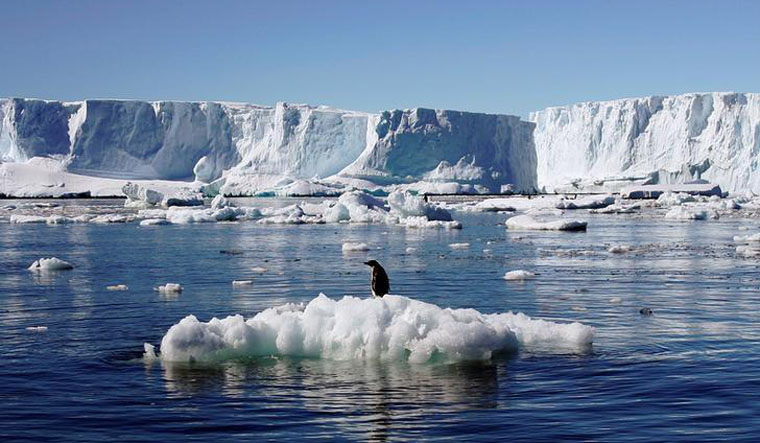Sea levels could be rising at a rate faster than most of the scientists estimated, according to a recent research report published in the journal of Science Advances. According to the report, melting of icebergs in Antarctica produce water which, when it enters the sea, renders the surface less salty. This interferes, according to the report, with warm water rising to take up the place of cold water in the winter. The warmer layer of freshwater on the surface could be creating a feedback loop by expediting the melting of icebergs around it.
Earlier, scientists had claimed that the biggest icebergs breaking off Antarctica unexpectedly help to slow global warming as they melt away into the chill Southern Ocean.
The rare Manhattan-sized icebergs, which may become more frequent in coming decades because of climate change, release a vast trail of iron and other nutrients that act as fertilisers for algae and other tiny plant-like organisms in the ocean.
These extract carbon dioxide from the atmosphere as they grow, a natural ally for human efforts to limit the pace of climate change blamed on man-made greenhouse gas emissions.
Ocean blooms in the wake of giant icebergs off Antarctica absorbed 10 to 40 million tonnes of carbon a year, the study estimated, roughly equivalent to annual man-made greenhouse gas emissions of countries such as Sweden or New Zealand.
Until now, the impact of ocean fertilization from the demise of giant icebergs, defined as floating chunks of ice longer than 10 nautical miles (18 kms) or almost the length of Manhattan, had been judged small and localised.
(Inputs from Reuters)

